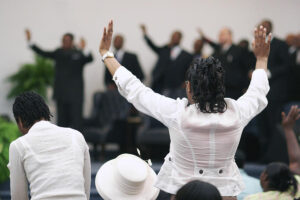
It is surprising that in the era of so-called enlightenment many Christians including those who are educated do not understand religious terms which are always on their lips.
This article seeks to discuss the differences between the words: cathedral, church and temple. Many erroneously think that these words mean the same thing. Let us begin with the term “church.”
Biblically, the word “church” derived from the Greek word, “ekklesia” or “ecclesia” does not refer to a place but a people who constitute the elect of God or community of Christian believers.
The meaning of ecclesia is different from another Greek word “Kyriakon” which means the Lord’s house. From this word comes the English word church like the Scottish “kirk” and the German “kirche.” However, both words, ecclesia and kyriakon mean the same in application under the New Testament.
We know that under the Old Testament, the Lord’s house, the house of God or the house of the Lord, referred to the tabernacle or temple which was built with materials such as woods, stones, gold, silver, bronze and others. It was called the house of the Lord obviously because it housed the Ark of the Covenant in which the presence of God dwelled.
However, the New Testament saints led by the early apostles understood the word church (ecclesia) to be royal priesthood, chosen generation, holy nation of Jesus Christ and not a place of worship.
In other words, the bodies of true Christians are the sanctuary or temple of the Holy Spirit; He lives within them. This means the body of the Christian is the house of God under the New Covenant which must be kept pure, holy and righteous to honour God.
Thus, Paul reminded the Corinthian believers saying, “Or do you not know that your body is a temple of the Holy Spirit within you, whom you have from God? … So glorify God in your body” (1 Corinthians 6:19).
Again, Paul wrote in his second letter to the believers in Corinth, “What agreement has the temple of God with idols? For we are the temple of the living God; as God said, “I will make my dwelling among them and walk among them, and I will be their God, and they shall be my people” (2 Corinthians 6:16).
You can see that under the New Covenant, the Lord’s house, the temple of God (kyriakon) which is the English word “church” actually points to Christians, followers of Christ, who are human beings and not buildings constructed with concrete, woods, nails, iron rods and roofing sheets.
Thus it is scripturally incorrect for Christians to say they go to church or they are going to church because they themselves are the church.
Now, what about the words, “temple” and “cathedral”? Many do not understand them etymologically. We know from the biblical point of view that, Solomon built a temple, but not cathedral. The fact is that a cathedral is not the same as a temple. The English word “temple” according to the Merriam-Webster Dictionary is derived from the Latin word, “templum” meaning “…sacred precinct, building consecrated to a deity,” of uncertain origin”.
A cathedral, on the other hand, comes from the Latin word, “cathedra” which means the throne or seat of a bishop. Historically, the bishop of the Catholic Church sat on the cathedra or throne to decide or judge cases in Rome. A cathedral, therefore, in its strict sense, refers to a building in which the throne or seat of the bishop is placed.
By James Quansah, Pastor
Email: clc.leadership@gmail.com
 clcgh.org Building The Capacity Of Christian Leaders, Equipping The Saints For The Work Of Ministry, Redirecting Straying Christians To The Sound Knowledge Of Christ
clcgh.org Building The Capacity Of Christian Leaders, Equipping The Saints For The Work Of Ministry, Redirecting Straying Christians To The Sound Knowledge Of Christ



